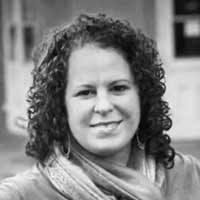Question
What is childhood family trauma?
Answer
I always kind of say that trauma, right now, is a buzzword. I feel like it is every third thing that you click on, especially if you are on, like, the TikToks and the Instagrams of the world. Everything is trauma, and that's good, but it is also kind of, you know, many argue that we are kind of watering it down and things like that. So, I do want to say that I recognize that it is really broad right now, but I also wanna recognize that family trauma itself is broad. There is a normal level of dysfunction because I feel like no person, no human being is going to go through this lifetime with a perfect childhood.
And people who do, I mean, good for them, but maybe, I don't know, I think that in itself would be a form of trauma because then you're sheltered, anyway, podcast for another day. But I really think that people who have gone through trauma, like family trauma, understand that this is something that affects them more than just the, "Okay, like Mom had her quirks, or Dad did his thing," or whatever. It's more than stuff like that. So, what I like to do is kind of give an example. A normal level of dysfunction is a family who can usually acknowledge that they're imperfect. Many times, you will hear them even joke about it.
I'm not saying it's exact like it's an exact determinant to figure out what's normal dysfunction and what's not. But usually, families who are healthy in their imperfections, they're able to say, "Yeah, we're imperfect. Like this is something that we recognize," and you can bring it up. You can acknowledge it, and there's not a power struggle behind it. You know, you could probably say to your caregiver, "Hey, this is something you kind of do," and, "Oh, I do kind of do that." You know, and there's more of that give and take as opposed to the punishment that comes from growing up in a very dysfunctional environment that is weaponized. So I know I say all that, and that's very, very broad, but family trauma is, like, anything that a person feels happened in their family of origin and in their childhood that is affecting them today.
So it could be anything from growing up in a place where there was a national disaster, growing up in a war zone, having to flee your country and come to another country, or having parents who have a mental illness. I always like to specify it's untreated mental illness. I'm not trying to stigmatize mental illness. There are people every day, all day, managing mental health and parenting. And that's not at all automatically a trauma. I'm talking about untreated. You know, I have many clients whose parents were dealing with some serious mental health symptoms, and they were untreated, and that can be traumatizing for a child. And the same thing with substance use, untreated, I mean. So things like that that happen in the childhood environment that people feel impact them today in their adult life.
This Ask the Expert is an edited excerpt from the webinar, The Effect of Childhood Family Trauma on Adult Relationships Podcast, presented by Benjamin T. Bencomo, DSW, LISW, LCSW and Kaytlyn Gillis MSW, LCSW-BACS

